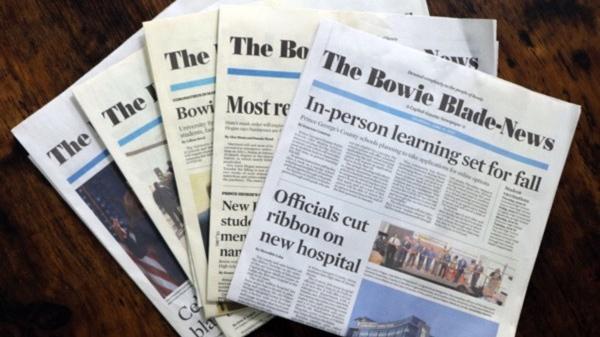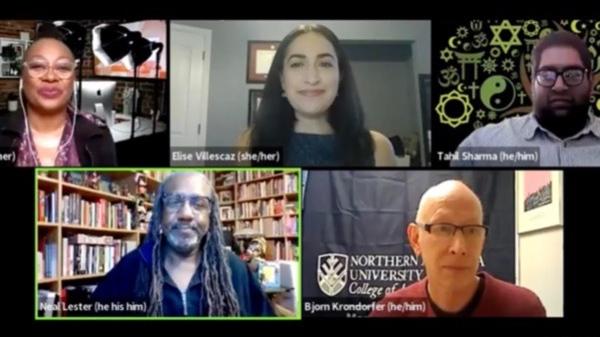Due to the globalization of media, modern people are being exposed to more news than ever before. Every day, we are bombarded with new stories, information, and calls to action that can inspire us to help humanity in some way. Widespread news, when accurate, can be a very powerful tool for good, as it can bring together groups of people who have never met and encourage them to fight for a common goal. Indeed, many social movements that fight for social justice have happened because of social media or other news outlets.
Although news can be beneficial, too much bad news can actually be harmful to us. As people continuously hear stories of heart wrenching, tragic, and devastating incidents, their mental and physical health can begin to suffer. According to BBC, research suggests that news “can sneak into our subconscious and meddle with our lives in surprising ways. It can lead us to miscalculate certain risks, shape our views of foreign countries, and possibly influence the health of entire economies. It can increase our risk of developing post-traumatic stress, anxiety and depression”. All of these negative stories can cause our minds to only focus on the nefarious aspects of the world, and make us so pessimistic that we are overwhelmed by anxiety and fears.
Eventually, when we are overcome by bad feelings, our brains can actually try and turn off our negative reactions to news. CNN reported that hearing about “news and trauma can also lead to what is known as disaster fatigue, making us less concerned and more apathetic and feeling a diminished sense of urgency about the crisis at hand. Disaster fatigue occurs when prolonged exposure to news coverage of disasters causes potential donors or volunteers to lose motivation to address the problem” (Pattillo, CNN). Because this can end up affecting our health, our body tries to defend against bad news by making us react less strongly to it. This can cause people to feel apathy about disasters in the world, and feel less willing to fight for change.
Why is it important to understand the impact of too much bad news? Of course, news can be a fantastic source of inspiration for many who wish to fight for social justice. The fight for social justice never ends, and it is important to spread information on the injustice happening all around the world. However, it is important to understand what negative broadcasts can do to one’s body and mind because it is vital that people are conscious of the fact that sometimes, they just need a break. At times, people need to step back and take a break from the bad news, so that they have the energy to fight for social justice. If they are swept away by the rapid outpouring of unsettling stories that they hear every day, both themselves and their social justice work will suffer for it.
Project Humanities has hosted discussions about the effect of Empathy Exhaustion, which occurs when people are overwhelmed by negative news. Four panelists, including Björn Krondorfer, the Director of the Martin-Springer Institute at Northern Arizona University, and Alexus Rhone, Founder of Truth Meet Story, LLC, spoke about the relationship between empathy, sympathy, and social justice. They spoke about their experiences with social justice, and how to deal with exhaustion that is caused by negative emotions resulting from bad news. If you are interested in hearing this discussion, you can watch a recording of the talk here!
How do we deal with this type of exhaustion? Studies have shown that there are certain actions that people can take in order to help relieve the mental and physical toll that empathy exhaustion can bring. Things as simple as mediation, spending time with friends, writing in a journal, and making sure to also surround yourself with good news can make a tremendous impact on one’s state of mind. Making sure that you prioritize your own mental health is vital when one joins the fight for social justice. So, as you continue advocating for global change, make sure that you take the time to pour into yourself too.
Empathy exhaustion takes a real toll on one’s mental state. It can lead to people losing motivation, or not caring as much about the issues stacked around the world. Making sure that you take care of yourself is an important part of social justice work, as in order to consistently work towards your goals, you must make sure to not burn out. Take some time for yourself this holiday season, and make sure you recharge before you run out of energy.
If you would like to find out more, check out these resources here!
- https://www.medicalnewstoday.com/articles/sharing-news-on-social-media-makes-us-think-we-know-more-than-we-do
- https://health.clevelandclinic.org/empathy-fatigue-how-stress-and-trauma-can-take-a-toll-on-you/
- https://mhanational.org/compassion-fatigue-empathy-burnout-health-care-workers-which-it
- https://www.ncbi.nlm.nih.gov/pmc/articles/PMC8096381/

